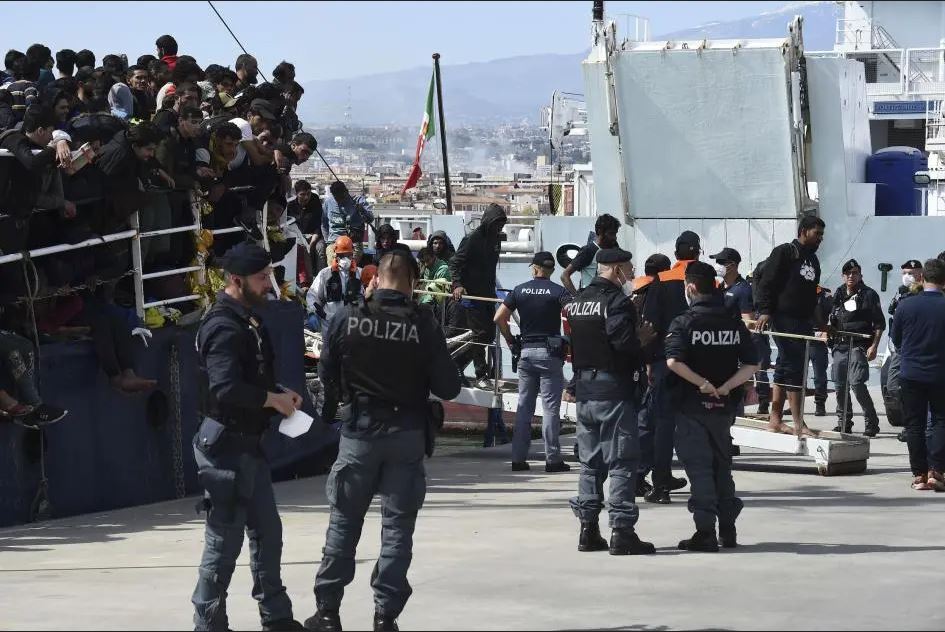The Italian government's immigration terrorism

The Italian government's move should be interpreted as an example of terror against humanity. It is important to note that, because of the anonymity of some asylum seekers and the unwillingness of others to report these situations, there is no media to keep an eye on the restrictions on acts and tortures committed against immigrants by the Albanian and Italian police and forces.
The ship "Libra," carrying the first batch of illegal immigrants from Italy, entered the Albanian port of Shenzhen, marking the final chapter in the controversial Italian government's strategy to handle the country's immigration crisis.
This group of asylum seekers (10 Bangladeshis and 6 Egyptians) will be moved to a center in the village of "Jader," which is 15 kilometers from the port, after completing the administrative procedures of reception at the port of Shenzhen. They will remain there until the review of their asylum application is completed.
If their asylum application is granted, these immigrants will be sent to Italy; if not, they will be sent back to their home country. It is unclear what will happen to them in this terrible facility (referred to as Second Guantanamo) while their application is being reviewed.
The agreement between Italy and Albania states that no more than 3,000 asylum applicants may be placed in Albania at the same time. It has designated 21 nations as "safe" and asserted that only "invulnerable" refugee men from "safe countries" who have crossed into Italy may be sent to Albania.
The Albanian and Italian governments haven't, however, offered a way to confirm this problem. This bilateral agreement allows for the annual transfer of up to 36,000 refugees from "safe" nations to Albania. In the first instance when an EU member state has looked into an asylum claim from a non-EU nation, Italian Prime Minister Giorgio Meloni and his Albanian counterpart Edi Rama agreed to move refugees who were saved from the sea to camps in Albania.
There are worries about crimes against vulnerable asylum seekers because of Meloni and her friends' fascist past in Rome and their link with Mussolini, the leader of Italy during World War II. Human rights organizations have questioned this deal, which mirrors Britain's contentious plan to deport asylum seekers to Rwanda. Many EU nations, especially Germany and Poland, have implemented tougher regulations as a result of rising tensions within the EU over the migration problem.